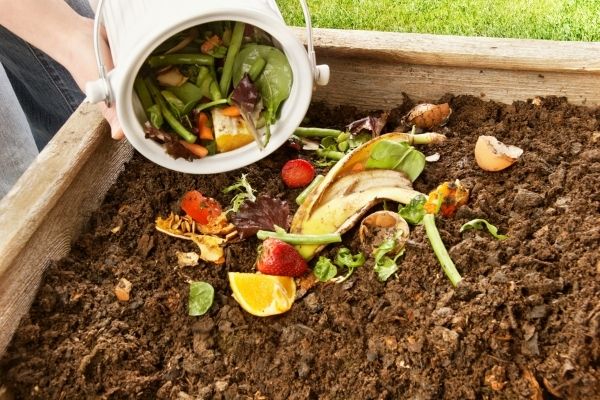Backyard Composting
Composting at home is easy; all it takes is a little time, effort and patience.
Why Compost?
Composting organic materials such as yard trimmings and food scraps reduces the amount of waste that ends up in the Westchester County Incinerator.
By using compost in your garden, you return organic matter to the soil. Compost enriched soil holds more nutrients and water, improves soil structure and drainage, and enhances plant growth.
Compost can be mixed directly into your soil, applied as a layer of mulch, used in a thin layer on your lawn, or soaked in a bucket to make “compost tea” for watering indoor and outdoor plants.
How it Works
The breakdown of organic waste occurs through the work of microorganisms (bacteria, fungi) and macro-organisms (worms, millipedes, and other bugs). These organisms work together to “digest” the organic matter and break it down into material that we know as compost!
What Can I Compost?
Good compost needs four things to thrive: greens (nitrogen), browns (carbon), air (oxygen) and water. Add in a ratio between 3:1 and 4:1 browns to greens by volume example: 3-4 buckets of browns for every bucket of greens.
Greens – nitrogen source provides the main bodybuilding proteins for the microorganisms breaking down your compost pile
- Grass clippings
- Food scraps
- Fruits and vegetables
- Coffee grounds
- Tea bags
- Egg shells
Browns – carbon source provides structure for the pile, allowing air to flow more freely
- Dry leaves
- Shredded paper
- Wood Chips
- Straw
- Small twigs
Air – compost microorganisms need oxygen! Turning or mixing the pile regularly will add air and speed up breakdown.
Water & Sun – composting works best when the materials are warm and damp. Place your bin in a sunny location and add water if it’s dry. If the pile is too wet, add some leaves, shredded newspaper or sawdust.
Composting Methods
The following methods can be used to compost in your backyard:
Holding Bins and Piles
Yard and kitchen waste can easily compost in piles or holding bins, which are simple wood, plastic or wire containers. A variety of easy to use bins can be found at hardware and garden centers.
Tumblers
Tumblers provide an easy and consistent way to aerate the compost to allow for quicker breakdown of organic material. Some models even allow for the collection of compost tea, a common byproduct that can be used as a potent liquid fertilizer for plants! Make sure to follow user instructions when using any model of tumbler to maximize yield and lower breakdown times for consistent, healthy compost.
Multi-Bin System
This compost system is a series of holding bins used for building and turning active compost piles. They are most appropriate for large volumes of yard waste and produce a high quality compost.
Helpful Hints
1. Be sure to cover all new food that is added to the compost pile with browns. This will keep away unwanted pests.
2. If your pile is too soggy, there could either be too much water or greens. Just add more browns and turn the pile.
3. For compost, quantity is important! Make sure you have a sizable pile to increase the rate of decomposition!
4. If your pile is not breaking down, there may be too many browns. Add more greens and mix them into the pile.
FAQ
How long will composting take?
Compost can take two to four months to breakdown. The finished compost is a rich material that looks like soil and has an earthy smell. Once you have finished product, place your pile in an open space for approximately two weeks to aerate before using the compost in your garden.
What can’t I compost at home?
- NO meat, fish, poultry, bones or fatty foods such as dairy products and oils. These attract animals and do not compost well in a home system.
- NO cat litter or dog feces. These materials may contain disease organisms that remain after composting.
- NO plants that have been treated with herbicides or pesticides.
Do I need to cut my scraps into small pieces before composting?
Cutting scraps helps compost break down faster by increasing the surface area of compostable material.
Does my compost bin/pile need to be in the sun?
Putting your bin/pile in the sun will increase the temperature of the compost, so the bacteria and fungi will work faster. This might also make your compost dry out faster so keep an eye on the moisture level.

